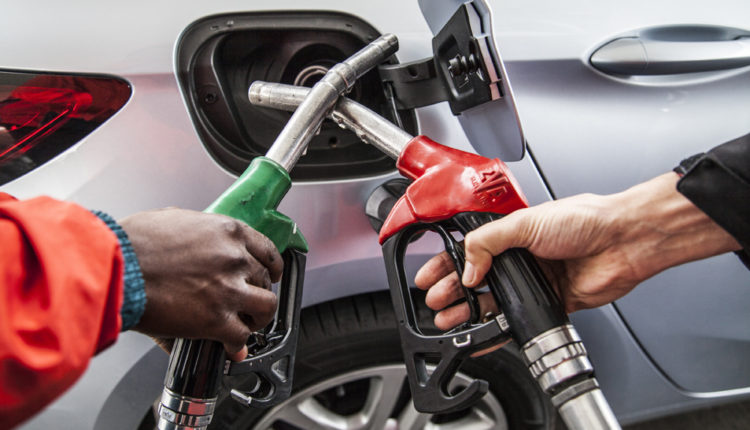Fuel prices to go up – COPEC-Ghana
Consumers are likely to purchase fuel at higher prices due to increased price on the world market, the Chamber of Petroleum Consumers-Ghana (COPEC-Ghana) has predicted.
The recent hike between 10pesewas and 16 pesewas is expected to hit the pumps of Major Oil Marketing Companies (OMCs) by the second week of February 2020.
This is likely to have a ripple effect on the prices of goods and services amidst a harsh economic impact due to COVID-19 infections.
An average of US$40 increment over a fortnight in benchmark crude oil prices per metric tonne has compelled marketers to adjust prices.
This implies a litre of petrol could go up from GHC 5.10 to GHC 5.24 pesewas on the average while diesel increases from about GHC 5.10 pesewas to GHC 5.25 on the average.
For a commercial vehicle that runs on 5-10 gallons of fuel daily, a GHC5 extra would be spent on the product.
COPEC Ghana Executive Secretary Duncan Amoah made it known to theghanareport.com that the OMCs have already factored it into the calibration of their metering system.
Therefore, it would “be difficult to absorb these escalation” in prices.
“It is quite likely that Ghanaians would have to pay more money for prices of fuel,” he stressed on Friday, February 5.
He said the rise was not caused by government and purely due to international price index.
However, he called on authorities to implement mechanisms to arrest the price fluctuations.
He was of the view that vehicle operators and the public should not pay more for fuel due to geopolitical forces in foreign countries where fuel is imported.
COPEC-Ghana is the second energy think tank that has predicted fuel hikes in the first pricing window of February.
The Institute of Energy Security (IES) had said that “owing to factors including the 3.9 per cent increase in price of the International Benchmark- Brent crude, the 5.10 per cent increase in price of Gasoil, the 7.47 per cent increase in Gasoline price and the relative stability of the local currency; the Institute for Energy Security (IES) projects price of fuel on the domestic market at the various pumps experiencing slight adjustments upwards as we enter the new month, February 2021”.
Crude oil-producing country importing fuel for use
Despite the country producing oil in large quantities, the lack of refineries has prevented the country from enjoying lower prices of finished products.
As of September 2020, crude oil production capacity in Ghana was at 196,000 barrels per day.
Addressing a meeting with 20 international oil companies in Norway, Finance Minister Ken Ofori-Atta indicated that Ghana could hit 500,000 barrels per day by 2025.
However, Ghanaians continue to buy fuel at exorbitant prices due to importation and taxes slapped on the commodity.
What can be done to address the situation?
The COPEC-Ghana Executive Secretary observed, “We have a local refinery that we could have leveraged to get some fuel security at lower prices, but unfortunately we don’t think there is political will to refurbish the Tema Oil Refinery”.
Mr Amoah observed a fully-functional refinery would cut the logistical cost which adds to the price build-up by exporting crude to Europe to be refined before importing back to Ghana.
“The need to get TOR back on stream and the need for political interference to be stopped holds the key for all for us,” he underscored.
Additionally, he cited the Bulk Oil Storage and Transportation Company Limited (BOST) failure in executing its mandate.
Mr Amoah explained that BOST is supposed to store huge volumes of fuel and release to the market to level prices and to check shortages “without overstretching the already burdened Ghanaian taxpayer”.
However, “we do not see that function of BOST and they are now focusing on trading…which was not the purpose of the BOST Act but to hold strategic stock”.
No justification for transport fare hikes
Increases in fuel prices usually trigger an increase in transport fares across the country.
But Mr Amoah entreated commercial transport operators to desist from fare hikes.
He argued that petrol was being sold on the average of GHC 5.45 before the partial lockdown introduced in March by the government to suppress the spread of the coronavirus.
Because of the cost at the time and a slash in the number of passengers to adhere to social distancing protocols, the fare was increased.
However, Mr Amoah indicated that since the numbers of passengers were restored with fuel below the GHC 5.45 mark, there should be no need for any fare increments.


